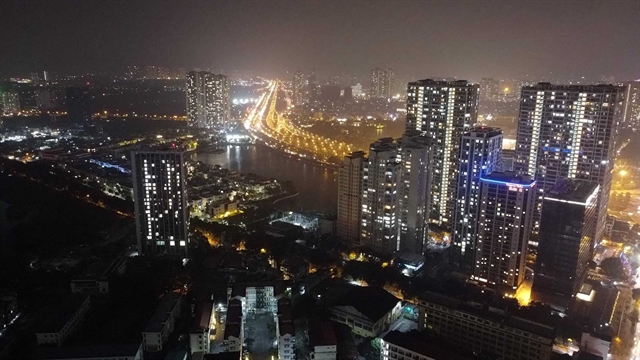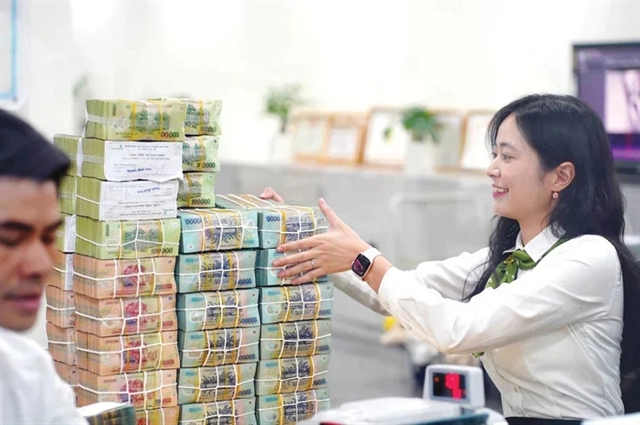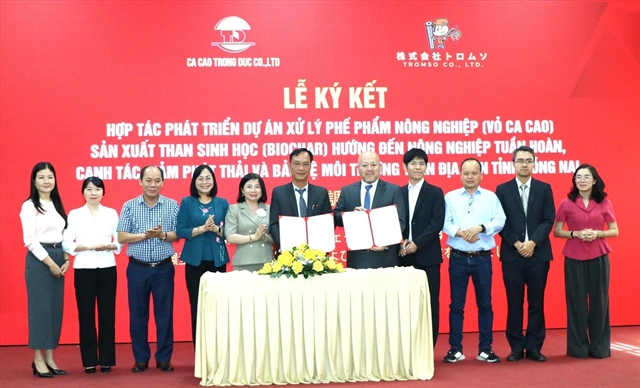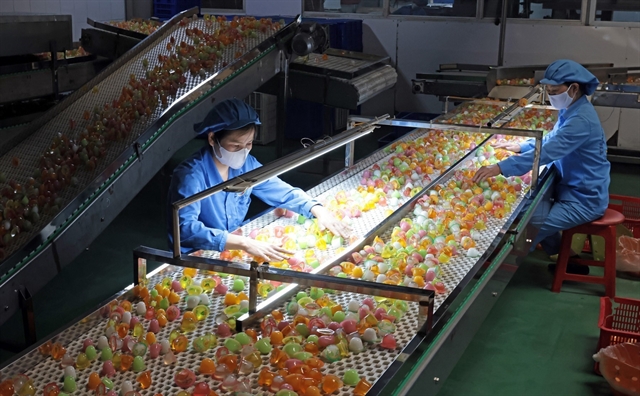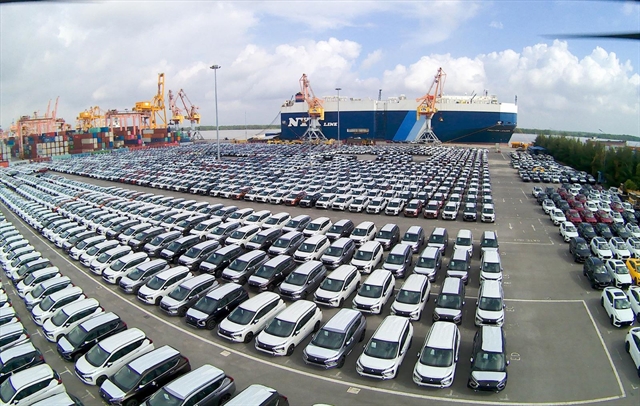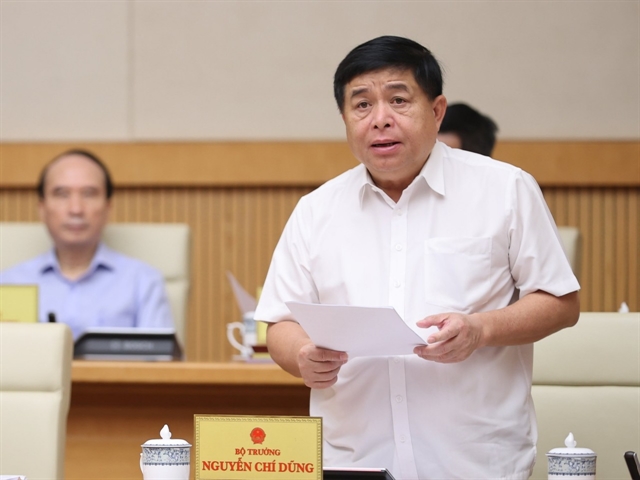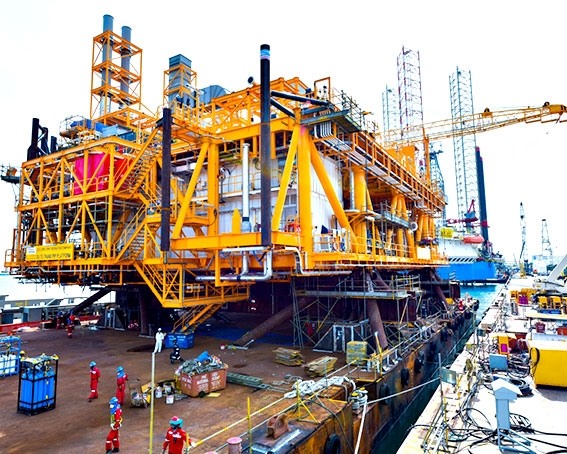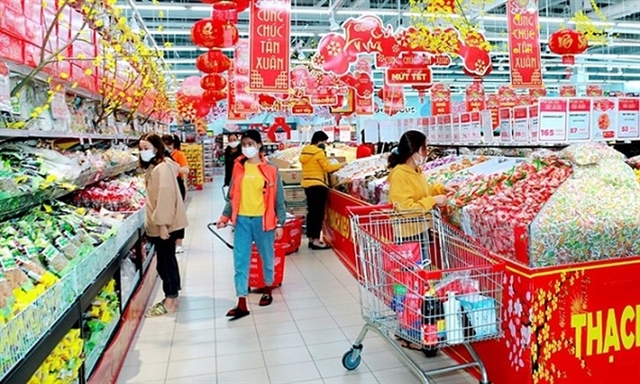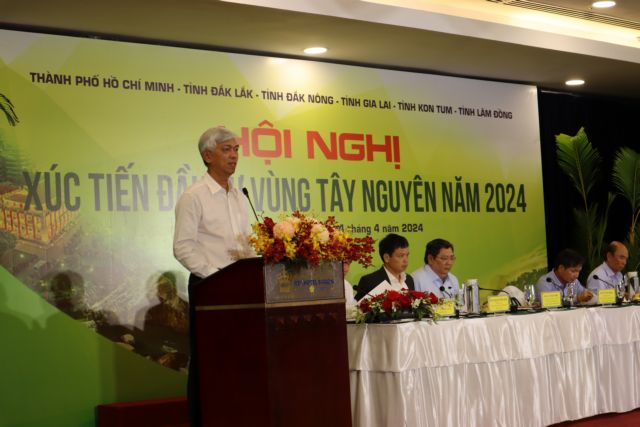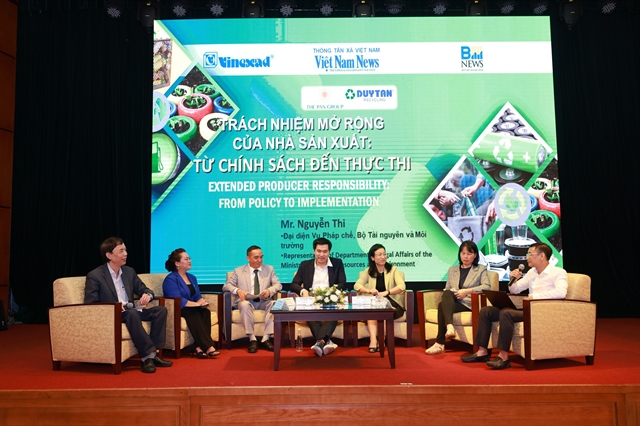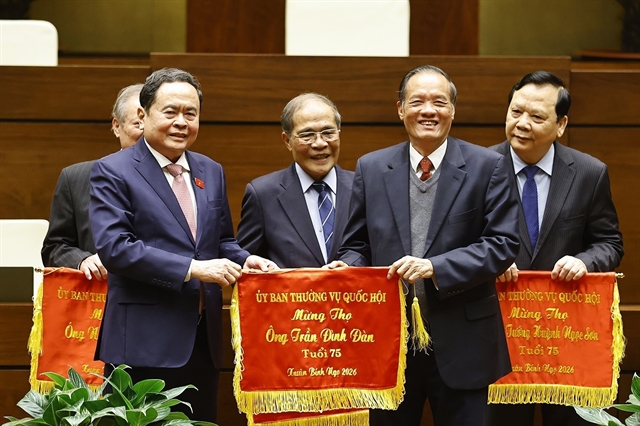
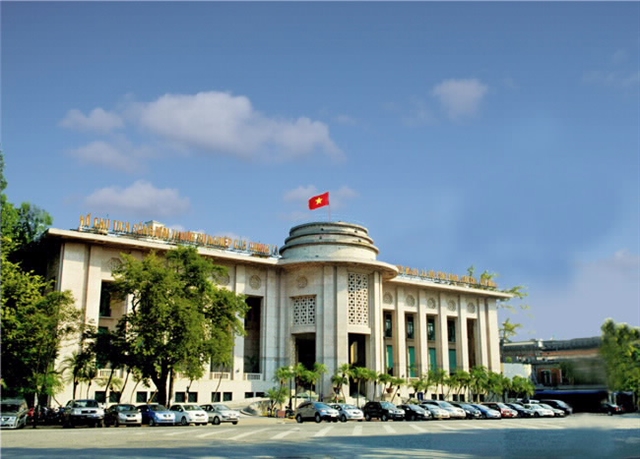
|
| Headquarters of the State Bank of Vietnam (SBV). The SBV on Tuesday stopped issuing bills after 16 consecutive sessions of issuing bills to withdraw a total of nearly VNĐ171.7 trillion out of the banking system. Photo sbv.gov.vn |
HÀ NỘI — Instead of issuing bills to withdraw money out of the banking system, the State Bank of Vietnam (SBV) has resumed injecting money through the open market operation (OMO) channel to support liquidity for commercial banks.
Accordingly, the SBV on Tuesday stopped issuing bills after 16 consecutive sessions of issuing bills to withdraw a total of nearly VNĐ171.7 trillion out of the banking system.
On the same day, it also lent commercial banks more than VNĐ5.95 trillion with a term of seven days and an interest rate of 4 per cent per year on OMO channel. This was the first trading session since the end of February when commercial banks need capital support from the SBV.
The move took place in the context that interest rates of Vietnamese đồng denominated loans in the interbank market suddenly skyrocketed in the two trading sessions of March 29 and April 1 this year. According to the SBV’s latest data, after surging nearly 8 times from 0.31 per cent on March 28 to 2.51 per cent on March 29, the average interbank interest rate at the overnight term (the main term accounts for about 90 per cent of the interbank transaction value) in the April 1 session continued to increase to 3.45 per cent, the highest level in more than one month.
Besides the overnight term, interest rates of other key terms also increased sharply after only the two sessions. Specifically, the rate for one-week term increased from 1.70 per cent to 3.78 per cent; two-week term, from 1.97 per cent to 3.52 per cent; and one month term, from 3.16 per cent to 3.66 per cent.
Liquidity of the system has also shown signs of tightening as in the last trading sessions in March, the number of commercial banks participating in bidding for SBV bills and the number of winning bills decreased sharply, though the winning interest rate of the bills was raised to around 2 per cent per year.
According to analysts, commercial banks were not interested in the SBV's bill bidding activity as liquidity surplus of the banking system decreased significantly in the wake of the SBV’s dozen consecutive money withdrawal sessions.
A credit growth in March after two consecutive months of decline has also caused liquidity of the banking system to be less abundant. The latest data published recently by the SBV shows that as of March 25 this year, credit of the banking system increased by 0.26 per cent compared to the end of 2023, of which credit in March alone rose by 0.98 per cent.
As liquidity has been tightened, some commercial banks, including large private banks such as VPBank, SHB and Eximbank, have decided to increase savings interest rates to attract deposits since the middle of last month.
However, the analysts forecast the liquidity of the banking system will not be too tight and interbank interest rates will likely cool down soon as the SBV will maintain the OMO lending channel and the first batch of 28-day bills will begin to mature next week, meaning that the SBV will inject back to the banking system a large amount of money. — VNS

